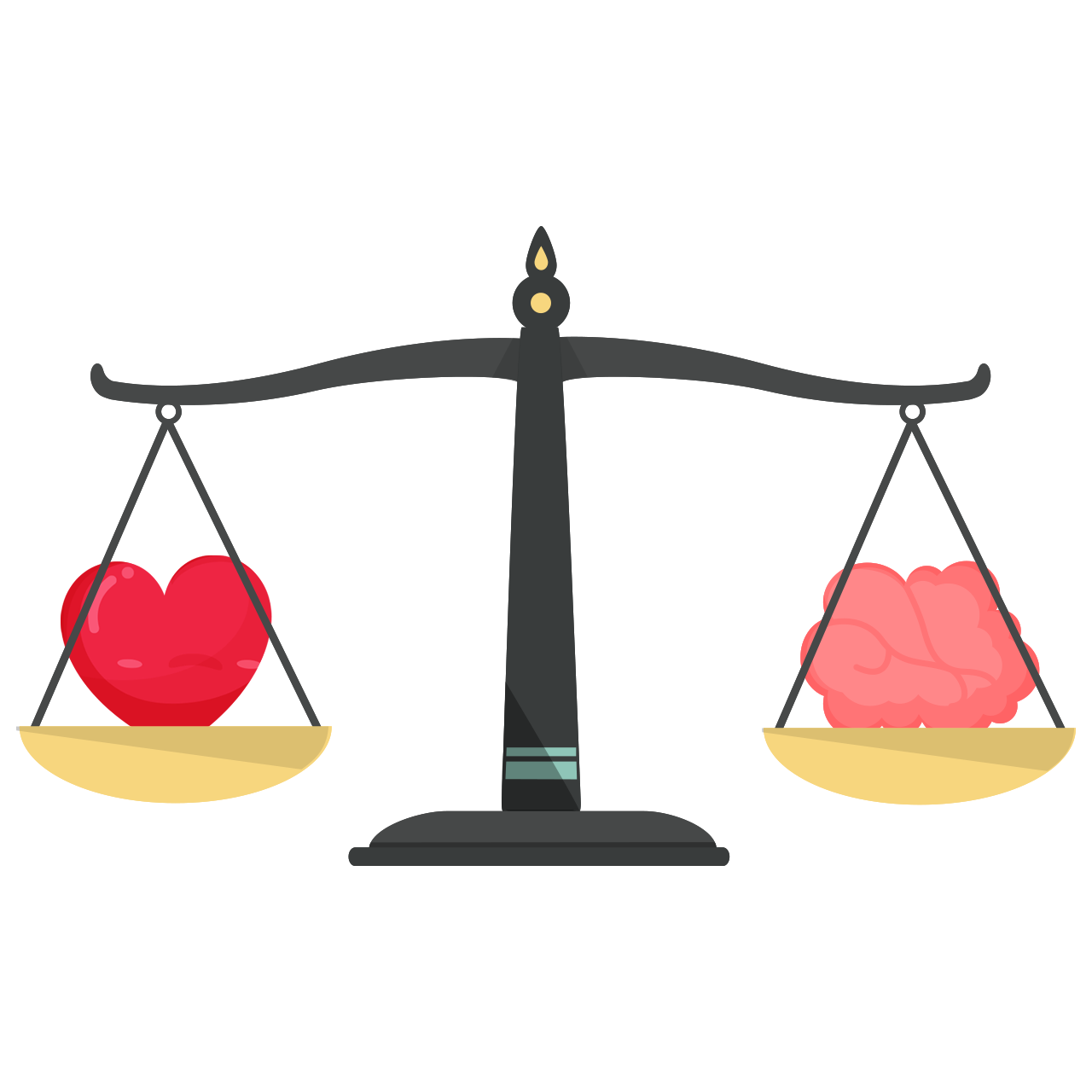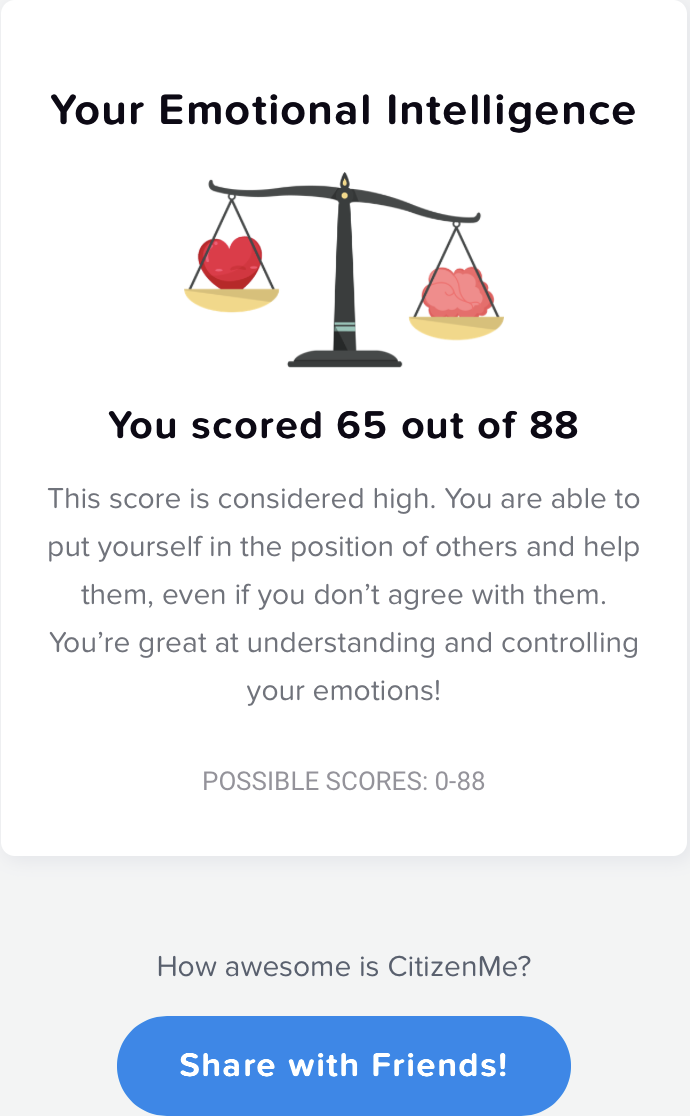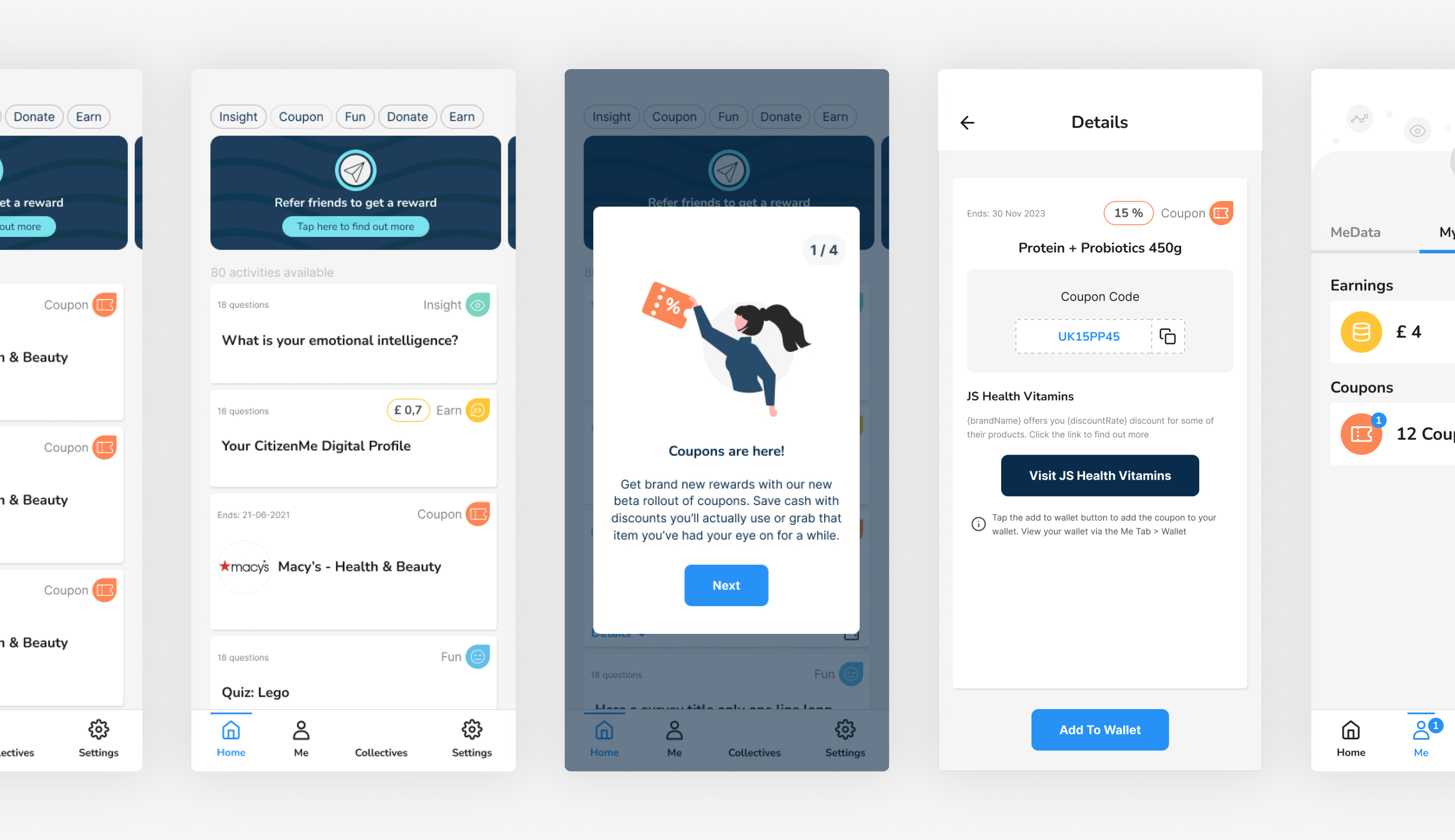
What does Emotional Intelligence look like?
What does Emotional Intelligence look like? https://www.citizenme.com/wp-content/uploads/2019/11/EI.png 1280 1280 Claudia Velilla Claudia Velilla https://secure.gravatar.com/avatar/703103b9d81e1bfd68fb7e289b8ed38a?s=96&d=mm&r=gWhile a lot of people will have heard of Emotional Intelligence, not many will know how to spot it in themselves and others. To some people the idea is repulsive, to others it is a way to become more authentic and true to who we really are. Discussions about Emotional Intelligence (EI) scale can itself become emotional. So what is it? The term has been around for a while and can be summarised as the ability to understand other people, what motivates them and how to work cooperatively with them.
This idea evolved to the notion that having the ability to understand and manage these emotions influence or relate an individual’s success. Today, emotional intelligence has been studied in different ways. Intrigued by the concept, we have designed an insight that tells you how high or low your emotional intelligence is!
The insight

This is an example of one of our team members. The score is calculated through the responses of several questions about the participant’s behaviour, attitudes and beliefs. The answers are then added to create a final score, which is represented as a percentage in the scale. We want to emphasize that having a lower Emotional Intelligence (EI) doesn’t mean that you are not as successful as those with higher EI. Emotional Intelligence (EI) and Intelligence Quotient (IQ) aren’t the same thing. Emotional Intelligence is all about being able to understand and manage your emotions and others’, creating deep human relationships that inspire trust and support.
Emotional Intelligence traits
As said, EI is measured in different ways, and there are several ways to define the term. It’s a fascinating topic that explores the uniqueness of the human mind and the complexity of human relations. We have put together some common traits that can be found on humans exhibiting EI (to different degrees). Have a read and see if any of them resonate with your behaviour!
You think about your feelings and are self-aware. You are able to recognize your emotions and their impact on yourself and others. This awareness begins with reflection. You ask questions such as:
-What are my emotional strengths and weaknesses?
-How does my current mood affect my thoughts and decision making?
-What’s going on under the surface that influences what others say or do?
On top of that, you are able to control and regulate your emotions. Before acting or speaking you take a moment to think, which is a very hard thing to accomplish in practice. Imagine a heated discussion with someone. For a lot of people, the emotions that the situation is bringing to the person would come out in the form of agitation or shouting, for example. It is very challenging to restrain ourselves from reacting to certain emotionally triggered events.
You benefit from criticism. Nobody enjoys negative feedback but you see it as an opportunity to learn and improve yourself. While you may have an initial negative inside reaction to someone’s criticism, you are able to control that emotion and reflect on what is being said to you, to turn it into something that will be useful in your development as a person.
You are an ‘authentic’ person. This doesn’t mean sharing everything with everyone, rather it is your ability to express yourself and communicate what you mean, meaning what you say and sticking to your principles and values above all else. This is hard to do in a way that doesn’t offend or antagonise those around you.
Additionally, you are able to demonstrate empathy towards others’ feelings and thoughts, which in turn helps you connect with them. Instead of judging others, you try your best to see things through their eyes. It is not about agreeing with their point of view, but rather trying to understand where they are coming from, which is what allows humans to form connections and build deeper relationships. You are also able to praise others by focusing on the positives of people and letting them know. This inspires others to be the best versions of themselves.
Perhaps one of the hardest traits to achieve is the capacity to apologize to those around you, which takes a lot of strength and courage. Doing so demonstrates humility, a quality that will draw people to you. Apologizing doesn’t always mean that you are wrong. It means valuing your relationship more than your ego. In line with this, you are also capable of forgiving and forgetting. Remember that hanging onto resentment takes away your chance to heal and you are the one that loses in the end!
Finally, you keep commitments and help others navigate their problems. When you make a habit of keeping your word, no matter how big or small the task, you develop a strong reputation for reliability and trustworthiness. Similarly, when you take that extra time to be there for someone, to listen and help them, you build trust and inspire others to follow your lead when it counts.
We want to emphasize that there is no good or bad results here! The good thing is that we are all different, a little weird, and beautifully unique in our own way. By understanding ourselves better we can use our quirks and differences to our advantage.
Understanding yourself better
At CitizenMe, we like what is core to people, and go beyond the ‘who’ so that we can understand the ‘why’. This is equally relevant to our app users unlocking insights about themselves, and to our clients, informing their research with unique data points and deep insights. Our vision at CitizenMe is for humans to flourish. The purpose of our app is to give everyone a digital mirror of themselves, which allows you to have better mental health. As this digital era accelerates, everything around you will be powered by your (and other people’s) personal data. They key is thus to make sure that this technology isn’t turned against you, but rather, that it’s used for your own personal and mental benefit. We are working towards a future where you are in charge of your personal data. Where you have a say on where this data goes and to whom. And we are doing this by putting you, the individual, at the centre of it all.
If you enjoyed this blog, make sure to take the insight yourself! If you have any questions please don’t hesitate to contact us on hello@citizenme.com.
- Post Tags:
- #Customer Reearch
- #future
- AI
- big data
- CitizenMe
- CitizenMe App
- CitizenMe Community
- citizens
- Creating Surveys
- Data
- data economy
- Data Ethics
- Data Privacy
- Data Science
- Decentralised Data
- Democratising Data
- Digital Activism
- Digital Identity
- Digital Rights
- Ethical Data
- GDPR
- Human Data
- insights
- Machine Learning
- Personal Data
- Privacy
- Terms of Service
- Transparency
- Trust
- Posted In:
- Business blog
- Citizen blog
- Uncategorized





